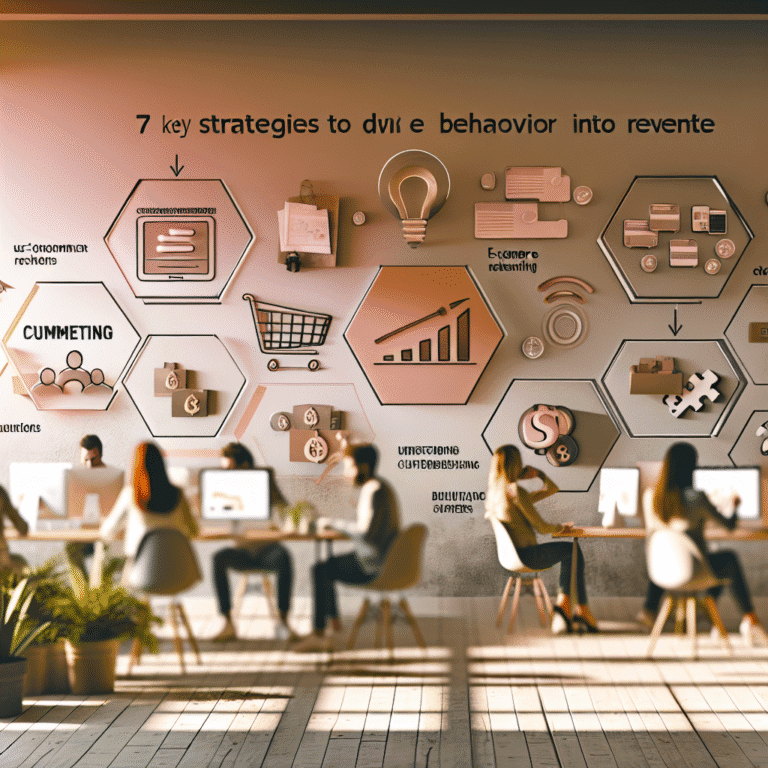Boost Your E-commerce Game with Psychology Tactics
You’ve got a top-notch online store. It’s sleek, speedy, and makes the finance folks grin from ear to ear with its ad returns. Yet, they’re still running away faster than you can say “shopper’s remorse.” But why?
The truth is, it takes more than technical wizardry to win over customers. Emotional appeal can be just as powerful. That’s where scarcity and urgency come into play.
Now, don’t worry. We’re not talking about those overused "Only 1 left!" alerts or dodgy countdowns that seem more desperate than a lone sock looking for its partner. Used wisely, scarcity and urgency can be your secret weapon to ramp up sales without losing trust. Let’s break it down.
The Skinny on Scarcity and Urgency
Before we delve into tactics, let’s get the basics clear. Because you deserve more than recycled buzzwords.
- Scarcity: The feeling that something’s in short supply.
- Urgency: The pressing need to act quickly or miss out.
These aren’t just marketing tricks. They tap into our primal instincts. Imagine you're the prehistoric human; there’s one banana left and a rival eyeing it. Do you philosophise? Nah, you snag that banana!
Why They Work
- Fear of Losing Out: We’d rather avoid losses than gain something new. Seeing “Only 2 left!” not only tempts but saves you from potential regret.
- Getting a Move On: We procrastinate less when something’s biting at our heels, no matter how irrational that feels. The reality? They convert dithering into decisive action.
The Brain’s Buying Buttons
Ever wondered what happens in the brain when you hit “buy”? Here’s the lowdown.
1. Aversion to Losing
You'd hate losing £50 more than you'd love finding it. When sites say “Only 2 left!”, it’s protecting you from a future sulk.
2. The Dreaded FOMO
It’s as real in shopping as it is online. See others checking out when you’re still overthinking? Stings, doesn’t it? Booking.com perfected it with hotel views — it works with hoodies too.
3. Getting Reacty
When something’s snatched away, suddenly you want it even more. Scarcity feeds this like nothing else.
4. The Fast Reward Bias
We love getting the goods sooner rather than later. “20% off today only!” plays right into that.
5. Commitment Kick
Once we’ve started a journey — browsed, clicked, added to cart — we’re more invested. Scarcity gives that final nudge: “Last few left in your size”, and your future self will thank you.
Ten Strategies to Pep Up Your E-commerce Without Losing Trust
Now for the meat and potatoes. These are tried and true methods for stirring up urgency and scarcity.
Low Stock Alerts
“Only 3 left in stock.” It’s a classic for a reason. Show movement like “Bought 5 minutes ago.” This combo pushes conversion upwards. Use sparingly though, too many alerts can make you look like the shop that cried wolf.
Real Countdown Timers
“Ends in 2h 42m.” Generic ones are just noise. Timers tied to real cutoffs, like flash sales, are effective — if used properly.
Exclusive Previews
“Be first to shop the winter drop.” Make folks feel special. Early access doesn’t just limit, it elevates.
Event-Based Timelines
Link deadlines with real-world events. Black Friday or the end of a season add credibility. They give folks a solid excuse to act.
Limited Bundles
Create special bundles. Limited edition colours or trial kits only available in this way, maybe? Make it clear there's a limit. It’s what Kylie did with her makeup ranges.
Local Scarcity
“Only 4 left in your area.” Tailor relevance to location. It’s what Airbnb does so well: “Usually booked!”
Real-Time Numbers
“14 people viewed this today.” If done right, this really works. Honesty is key; fake figures will only backfire.
Shipping Alerts
“Order in 1h for next-day delivery.” Pair urgency with a reward like fast shipping to increase conversions.
Price Shock with Limited Time
“Today only — £49 from £89.” Pair discounts with original pricing to double the impact. But ensure the reset happens for realsies — trust is everything.
Scarcity in Abandonment Emails
“Still deciding? Only 2 left in your size.” Cart emails already have context. Sprinkle in a dash of scarcity to beef up engagement.
Keeping it Real
Here’s the kicker — truth always prevails. Falsifying scarcity does more harm than good. True urgency, with transparency, prompts action.
Wrapping it Up with a Bow
We’re not machines crunching numbers all day. We’re humans with anxieties, distractions, and a penchant for overthinking. The trick is to nudge without nagging, to guide without goading. Test a countdown, try a bundle, adjust that cart email.
Big results from little nudges. Because behind every click, there’s a person. And right now? They’re deciding which of their four open tabs to go with. Give them a reason to choose yours.
Sources
- Cialdini, R. (2006). Influence: The Psychology of Persuasion
- SaleCycle (2023). Cart Abandonment Benchmarks
- Shopify Blog (2023). Psychological Triggers in High-Converting Stores
- Baymard Institute: Booking.com UX Review (2022)





